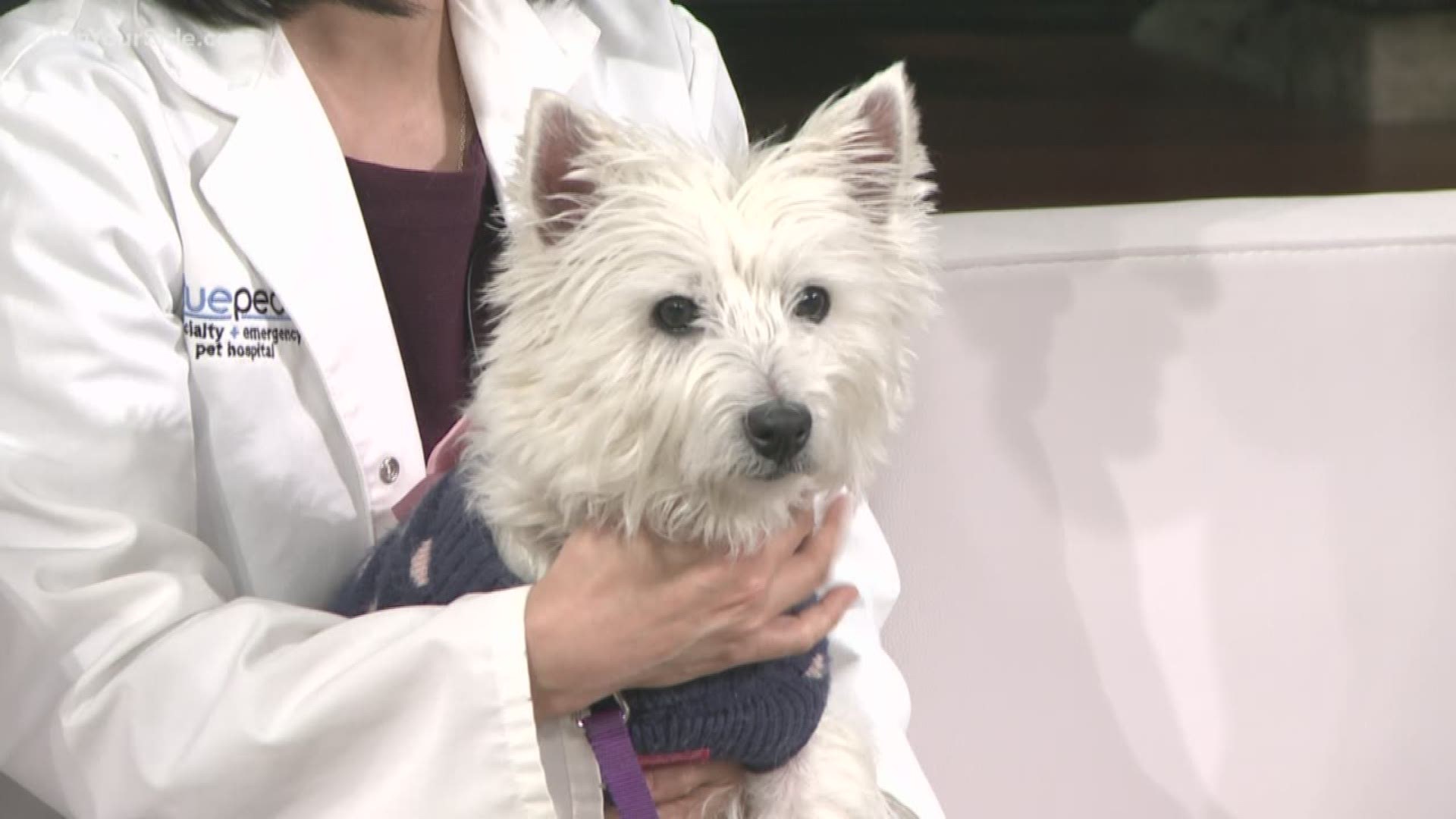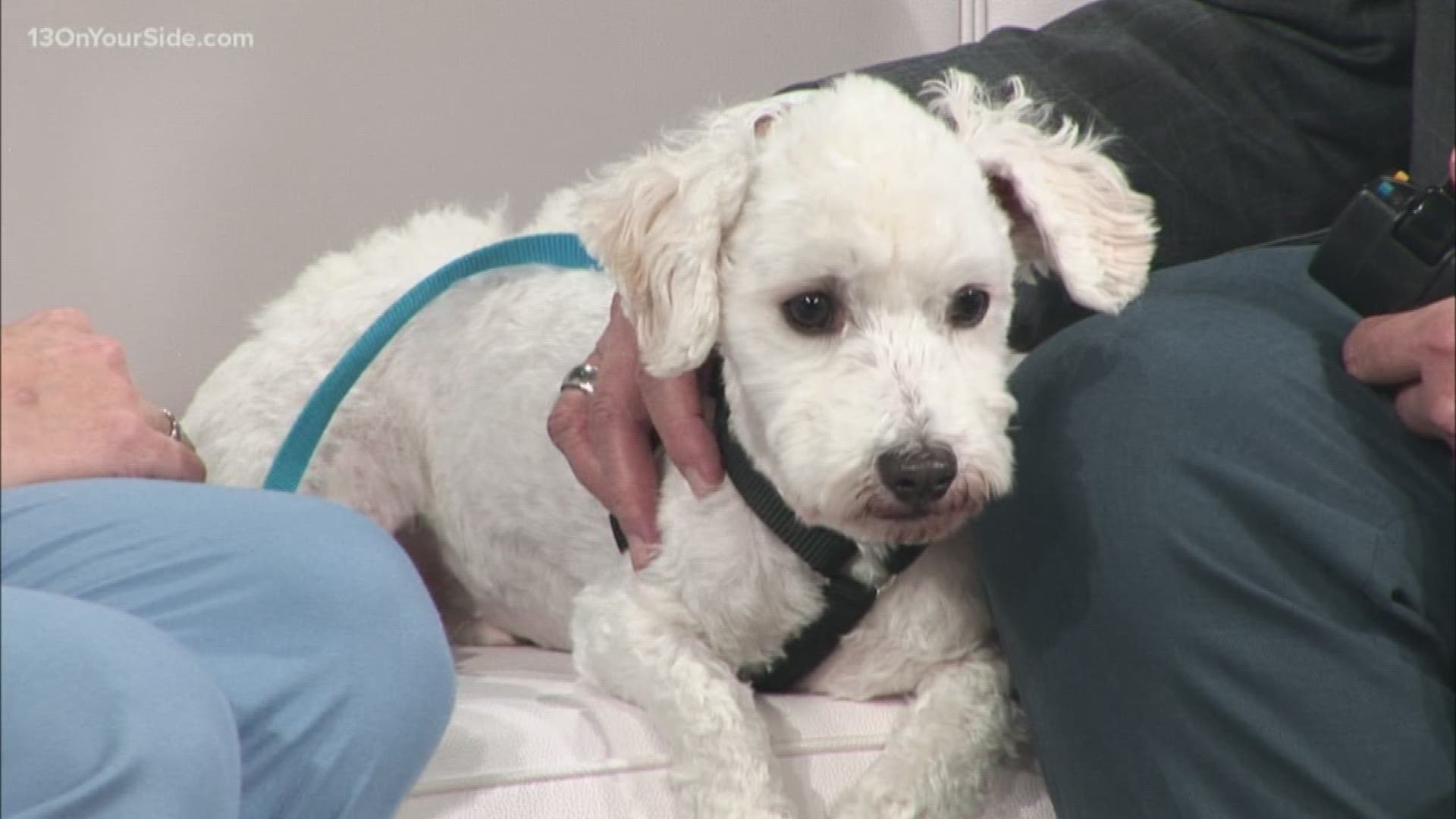GRAND RAPIDS, Mich. — No matter how you celebrated New Year’s 2020, there is one tradition that should always be upheld, and that is making a New Year’s resolution. While you may be busy thinking about how you will get fit or which bad habits to ditch, it is important to keep some New Year’s resolutions in mind for your pet.
Veterinarians from BluePearl Specialty and Emergency Pet Hospital are encouraging pet owners to make New Year’s plans for pets, because just like us, they can benefit from changes to their wellness routines.
“Pets cannot make resolutions on their own; only you, the owner, can do that. As we come into the new years and the new decade, it is important to remember that pets may also need to ditch those bad dietary habits and engage in a healthier lifestyle,” said Yoojin Kim, DVM, veterinary internist at the BluePearl in Grand Rapids. “This new year, try to set some achievable goals for your pet and stick to them. Ultimately, these resolutions will make for a happier and healthier pet.”
Here are a few New Year’s resolution ideas that will help promote a happier and healthier year for your furry friend.
Take these five tips.
- Consider quitting smoking. Second hand smoke isn’t only harmful to people; it is also harmful to pets. Smoking around dogs, cats, and birds, especially, puts them at greater risk of numerous health problems. Pets exposed to second-hand smoke tend to have more allergies, eye infections, and respiratory issues, including lung cancer. Knock the habit to help keep you and your four-legged friend healthy.
- Exercise with your pet and perform a diet audit. Exercising for both people and pets is a great way to stay in shape. The life expectancy of a pet can be significantly increased if they live a healthy and active life. You may also want to evaluate what and when your pet is eating. Avoid overfeeding and weight gain by portioning the food with a measuring cup. Speak to your veterinarian about appropriate food portions and for general diet and nutritional guidance.
- Maintain regular visits with your primary veterinarian. Pets age much faster than people, so it is important to bring your pet in to see a veterinarian at least twice a year. And because pets are inherently deceptive and experts at hiding illness, you may not immediately notice symptoms. By delaying veterinary exams, conditions can be more progressed—potentially resulting in costly and invasive treatment.
- Get pet insurance. Over the past decade, advances in veterinary medicine have given pet owners access to cutting-edge therapies and treatments—but these advanced treatments and therapies also come with a cost. Consider obtaining a pet insurance policy to assist with funding in the event of a veterinary emergency. Companies like Trupanion offer pet health insurance, which can cover injuries, illnesses, diagnostic testing, surgeries, medications, and lab work.
- Start an emergency fund. The costs of veterinary medicine can put a strain on any pet owner looking to pay out of pocket. Even the most common injuries and illnesses in pets, like knee ligament rupture and kidney disease, can cost thousands to repair or treat. By setting aside $20 to $40 per paycheck, you can protect both your pet and your finances if you are ever in need of emergency care.
RELATED VIDEO:
More Pet Peeves on 13 ON YOUR SIDE:
►Make it easy to keep up to date with more stories like this. Download the 13 ON YOUR SIDE app now.
Have a news tip? Email news@13onyourside.com, visit our Facebook page or Twitter. Subscribe to our YouTube channel.


